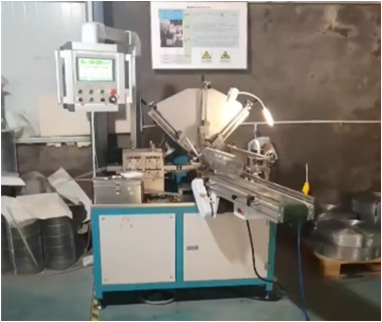 Tel:
+8615930870079
Tel:
+8615930870079
Dec . 03, 2024 17:24 Back to list
dust filter cartridge
Understanding Dust Filter Cartridges Importance and Applications
Dust filter cartridges play a crucial role in maintaining clean air quality in various industrial and commercial settings. As industries continue to evolve and expand, the need for effective dust collection systems has become paramount. Dust filter cartridges are essential components of these systems, designed to capture airborne particulate matter and ensure a safe and clean working environment.
What are Dust Filter Cartridges?
Dust filter cartridges are cylindrical filters used in dust collection systems to trap dust, pollutants, and other particulate matter in the air. They are typically constructed from high-efficiency filter media that can capture particles of varying sizes, from large dust particles to fine particulate matter, including allergens and toxic substances. The design of these cartridges allows for optimal airflow while maintaining high filtration efficiency.
How Do Dust Filter Cartridges Work?
The operation of dust filter cartridges is relatively straightforward. As air containing dust and other particles is drawn into the dust collection system, it passes through the filter cartridge. The filter media captures and retains the particles while allowing clean air to flow through. Over time, the accumulation of dust on the filter media might reduce efficiency, necessitating maintenance procedures, such as cleaning or replacing the cartridges.
Modern dust filter cartridges often feature technologies such as pleating to increase the surface area of the filter, enhancing dust-holding capacity and extending the lifespan of the filter. Additionally, some cartridges are equipped with pulse-jet cleaning systems that periodically blast air through the cartridge to dislodge accumulated dust, making them more efficient and effective.
Importance of Dust Filter Cartridges
1. Health and Safety One of the primary reasons to implement dust filter cartridges is to protect the health and safety of workers. Fine dust particles can lead to respiratory issues, lung diseases, and other health complications when inhaled. By effectively removing dust from the air, these cartridges help create a safer work environment.
2. Regulatory Compliance Many industries are bound by environmental regulations that mandate the control of airborne pollutants. Dust filter cartridges help companies meet these regulations by reducing emissions and ensuring compliance with local, national, and international standards.
dust filter cartridge

3. Equipment Protection Dust and particulate matter can be highly abrasive, damaging machinery and equipment. By capturing these particles before they enter production areas or machinery, dust filter cartridges prolong the life of industrial equipment, reducing maintenance costs and downtime.
Applications of Dust Filter Cartridges
Dust filter cartridges find usage in a range of industries, including
- Manufacturing In manufacturing settings, they are used to capture dust from processes like grinding, welding, and cutting, maintaining a cleaner and safer environment.
- Woodworking The woodworking industry produces a significant amount of sawdust and debris. Dust filter cartridges help in removing these particles, protecting workers and equipment.
- Food Processing Maintaining hygiene is crucial in food processing plants. Dust filter cartridges help control airborne particles that could contaminate products.
- Pharmaceuticals In pharmaceutical manufacturing, controlling dust is essential for product quality and safety. Dust filter cartridges ensure that the air remains free from contaminants.
Conclusion
Dust filter cartridges are vital components in the quest for cleaner air in various industries. Their ability to capture harmful particles not only protects the health of workers but also ensures compliance with regulations and the longevity of equipment. As industries become increasingly focused on sustainability and safety, the importance of effective dust filtration will continue to grow, making dust filter cartridges an indispensable asset in modern industrial operations.
-
Types and Applications of Air Filtration CartridgesNewsJul.28,2025
-
The Role of Gas Turbine FiltersNewsJul.28,2025
-
Mastering Air Filter Cartridge UseNewsJul.28,2025
-
Advanced Turbine Filters for Modern Gas TurbinesNewsJul.28,2025
-
Cellulose Air Filter Cartridge Advantages in Dust FiltrationNewsJul.28,2025
-
Cellulose Filters for Air Particle ReductionNewsJul.28,2025

 Email:
Email:





